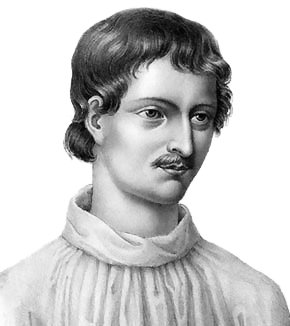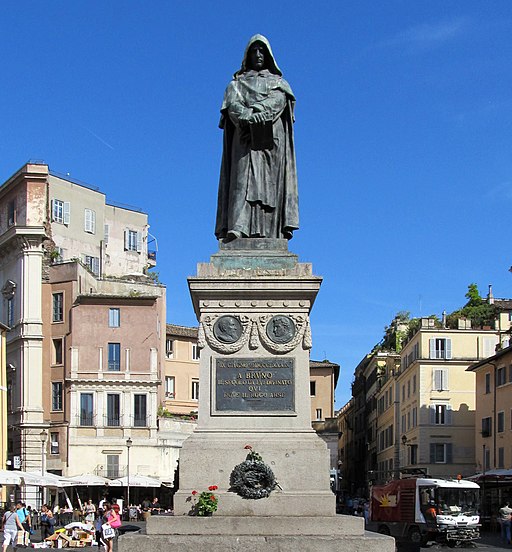Recalling the Life of Irish Philosopher, John Toland (1670-1722)
– Some Memoirs of the Life and Writings of Mr. John Toland –
 |
| John Toland (1670-1722) |
 |
| John Toland (1670-1722) |
Let me start this review with a personal anecdote. During my studies of Philosophy at the University of Barcelona, at no time was John Toland mentioned: neither in History of Modern Philosophy, nor in Philosophy of Science. I was therefore able to study such important authors as Giordano Bruno, Gottfried W. Leibniz or Baruch Spinoza without hearing Toland's name from my professors. Not even a marginal mention of the author of Letters to Serena, as we studied Isaac Newton.
 |
| Physic without Physicians by John Toland (2020 edition) |
A clue that may help us to solve these questions is offered by John Toland's brief treatise that we present here, Physic without Physicians1, a text that was first published by the French Huguenot, Pierre Desmaizeaux in 17262. Now, almost 300 years later, it comes to light again, thanks to the editorial initiative of J.N. Duggan. Thus, aware of the novelty that the appearance of this writing represents, not only for the Toland scholar but for everyone interested in philosophy, the editor accompanies the text with a brief Introduction, where its genesis is explained, as well offering a very useful Glossary of the personalities cited by Toland, an exhaustive Chronology and a brief catalogue of works published in relation to Toland. Also noteworthy is the reproduction of the only existing portrait of the Irish thinker, holding in his hand his "published, but not printed" Pantheisticon of 1720, as well as a copy of the inscription in the burial register, which indicates that Toland was buried on March 13, 1722.
As regards the genesis of Toland's dissertation, it should be pointed out that it is found in the lung and stomach disease that affected the Irish philosopher at the end of December 1721, and that would eventually lead him to his death on March 11, 1722. Thus, in the brief moments of recovery that took place in January 1722, Toland writes these lines to his faithful friend and confidant, Barnham Goode, in which he denounces the incompetence, contempt and arrogance of the doctors for their patients, as well as the powerful and costly fraud that pharmacists constitute for sick people.
 |
| Originally published in 1726 by Pierre Desmaizeaux as part of a Collection of Works |
Such reaction of Toland are due to the fact that, for him, this kind of Medicine "is founded in darkness, and improv'd by Murther."
With the help of Pliny's testimony, the Irish philosopher next denounces how doctors "make an assured traffic of our lives", and brings up the anecdote of a "wretched patient" who asked to be put on his tomb, "THAT THE MULTITUDE OF HIS DOCTORS HAD KILL'D HIM."
As Toland continues, doctors "learn their Art at the hazard of our Lives, and make experiments by our Deaths: besides, that none, but only Physicians, may murder men with all security and impunity; nay, and affront their memory afterwards, reproaching them with intemperance, and reviling the dead without provocation."
Indeed: one of the traits that Toland highlights from doctors is their arrogance and irresponsibility to their own acts or "crimes"3:
How disingenuous! how barbarous! first to torture and kill us, and then to give out, we did it our selves; that we wou'd not be govern'd, and ate, or drunk, or did something else the Doctor forbad.
But if there is one kind of man who is even more contemptible than doctors, it is undoubtedly "the Apothecaries" with their "intolerable cheats":
For, to do every body justice, the latter have not done half the hurt to mankind as the former; and they wou'd do still less, did they prepare their own Medicines, and avoid those monstrous mixtures, which are the source of infinite mischiefs, and wherein a systematical conjecture has more place than reasonable or experimental knowledge.
In this way, Toland denounces how sick people are forced to consume medicines, which are not only usually expensive but also "inextricable", in the sense that the patient does not know (and should never know) what they are made of: that is, what he is really taking and what their real effects are. Thus, we are forced to ingest "those Compositions" that often produce "quite other effects than what were expected from their proportionable adjustment."
Following the teachings of the ancients, Toland maintains that the task of pharmacists has historically been to discredit natural and traditional methods and cures in the name of their "mysterious" chemical compositions:
And, what is still more observable, when, by the information of Travellers or otherwise, any Remedy of this kind is communicated to a collegiate Physician (as it sometimes happens) presently this man of mystery, who scorns to learn of any one, so alters and disguises his discovery, by preparing it more artificially than the Natives, or incorporating it with a multitude of other things, that it either loses all its virtues, or produces a different, if not a contrary effect. In the mean time a noble Medicine, perhaps a Specific, is cry'd down and grows into disuse, thro' the credulity of those that implicitly hearken to a pretending Coxcomb. Thus even the Peruvian bark, and Ipecacuana root, are often render'd noxious or insignificant by pharmaceutic preparations.Indeed then (and again quoting Pliny) if such a true remedy "be brought out of the garden, of some herb or shrub be sought in the fields, the Apothecaries will of all arts become the most contemptible."
Does all this mean, the reader may ask at this point, that Toland despises Medicine as much as doctors and pharmacists?
No. Toland denounces not Medicine, but "the clogging and nauseating slops of the Physicians."
The Irish philosopher despises what medical practice has become, not the ability to cure. Indeed, the author of Nazarenus not only defines Medicine as "a gift of God and Nature" but also as the unit of "a regular Diet, moderate Exercises, and the proper use of Simples."
Doctors and pharmacists, like priests are not friends of humanity but its exterminators – it is historically proven that "those Nations, which have no Physicians, are troubl'd with few diseases."
Toland was well aware of the radical nature of these positions before the medical community and therefore, anticipating the contempt and discredit of the latter, he maintained that "I care as little what they say, as they do what becomes of their Patients" and he concludes:
A nobler task attends me: for I shall study Nature hereafter with regard to the body of man, in her own way and for my own preservation, as the best Philosophers were antiently wont.
The contemporaneity of Toland's reflections in this tract, which can be described not only as the most personal but also, as the one written "with more phlegm" in the author's entire life, does not escape any attentive reader. Indeed, at a time like the present, when, by order of a World Health Organization (a union of doctors and pharmacists) and therefore, of professional medicine, the whole planet is confined to its homes; when, by violating and blowing up all the basic principles of traditional medicine, the population is inoculated with fear and panic over a supposed pandemic that has to create a "new normality" based on the obligation of a vaccine (whose components will be known by none of those who will be forced to get it, if they do not want to be a "pariah"), Toland's dissertation deserves to be read with attention. Only in this way we will be able to defend ourselves against doctors, mainstream or established medicine and, above all, against those "pretending Coxcombs" enemies of humanity represented by pharmacists and their financiers.
And with this, we can now answer the questions we brought up at the beginning of this review. Indeed, in contrast to Toland's "testament", we have works such as Critique of Pure Reason, The Phenomenology of Spirit, Ideas Pertaining to a Pure Phenomenology and to a Phenomenological Philosophy, or Being and Time. What good do these writings bring to Humanity? Where are the indications in these works that will help Mankind to lead a better life?
Disrepute has fallen and is still falling on Philosophy. Authors such as Lev Shestov allow themselves to discredit it, arguing that Philosophy has always considered itself a "servant", first of theology, then of science, laughing at its ancient and original claim of being "the science of sciences"4. It is precisely in this context that the words of Plato become significant, when he affirms that Philosophy "should not be cultivated by bastards, but by the well-born ones"5 and indeed, Toland is a good example of a well-born philosopher (φιλόσοφος γνήσιος).
This review is translated by the author from the original Spanish version, which appears on the website of AGON. Grupo de Estudios Filosóficos
Physic without Physicians by John Toland (2020 edition) is published by The Manuscript Publisher and available to buy online, in print and e-book editions.
1. John Toland, Physic without Physicians. Published by The Manuscript Publisher, 2020
2. A Collection of Several Pieces of Mr. John Toland, now first publish’d from his Original Manuscripts: with some Memoirs of his Life and Writings. J. Peele, London, 1726, 2 vols. The text can be found in the second volume, pp. 273-291.
3. Toland writes, "I shall not insist on such slight crimes, compared to others, as their wilfully protracting many times the cure of Diseases; or their turning of small disorders into perilous symptoms, in order to squeeze the purse of an opulent patient: nor yet am I prone to credit those Physicians, who accuse some of their faculty of willfully sending a patient out of the world; lest another should have the credit of a cure, with they cou’d not effect" (page 9).
4. Lev Shestov, All Things are Possible (Apotheosis of Groundlessness), §74.
5. Plato, The Republic, 535c.
 |
| Physic without Physicians by John Toland (1670-1722) as it first appeared in 1726 |
Mr Toland had for above four years past liv’d at Putney, from whence he cou’d conveniently go to London and come back the same day; but he used to spend most part of the winter in London. Being in town about the middle of December, he found himself very ill; having been lingering for some time before. His appetite and strength fail’d him: and a certain Doctor, who was call’d to him made him a great deal worse, by bringing a continual vomiting and looseness upon him. However, he made a shift to return to Putney, where he grew better, and had some hopes of recovery. In this interval, he writ a Dissertation* to shew the uncertainty of Physic, and the danger of trusting our life to those who practise it: while by our own care and experience we might easily provide such medicines as are proper and necessary for us.
*That Dissertation, intitled Physic without Physicians is printed in this Collection, Vol. II. pag. 273
 |
| New edition, published by The Manuscript Publisher |
 |
| Giordano Bruno (1548-1600). Public Domain |
On 20 January 1600, Pope Clement VIII declared Bruno a heretic and the Inquisition issued a sentence of death. According to the correspondence of Gaspar Schopp of Breslau, he is said to have made a threatening gesture towards his judges and to have replied: Maiori forsan cum timore sententiam in me fertis quam ego accipiam ("Perhaps you pronounce this sentence against me with greater fear than I receive it") – Wikipedia
 |
| daryl_mitchell from Saskatoon, Saskatchewan, Canada / CC BY-SA |